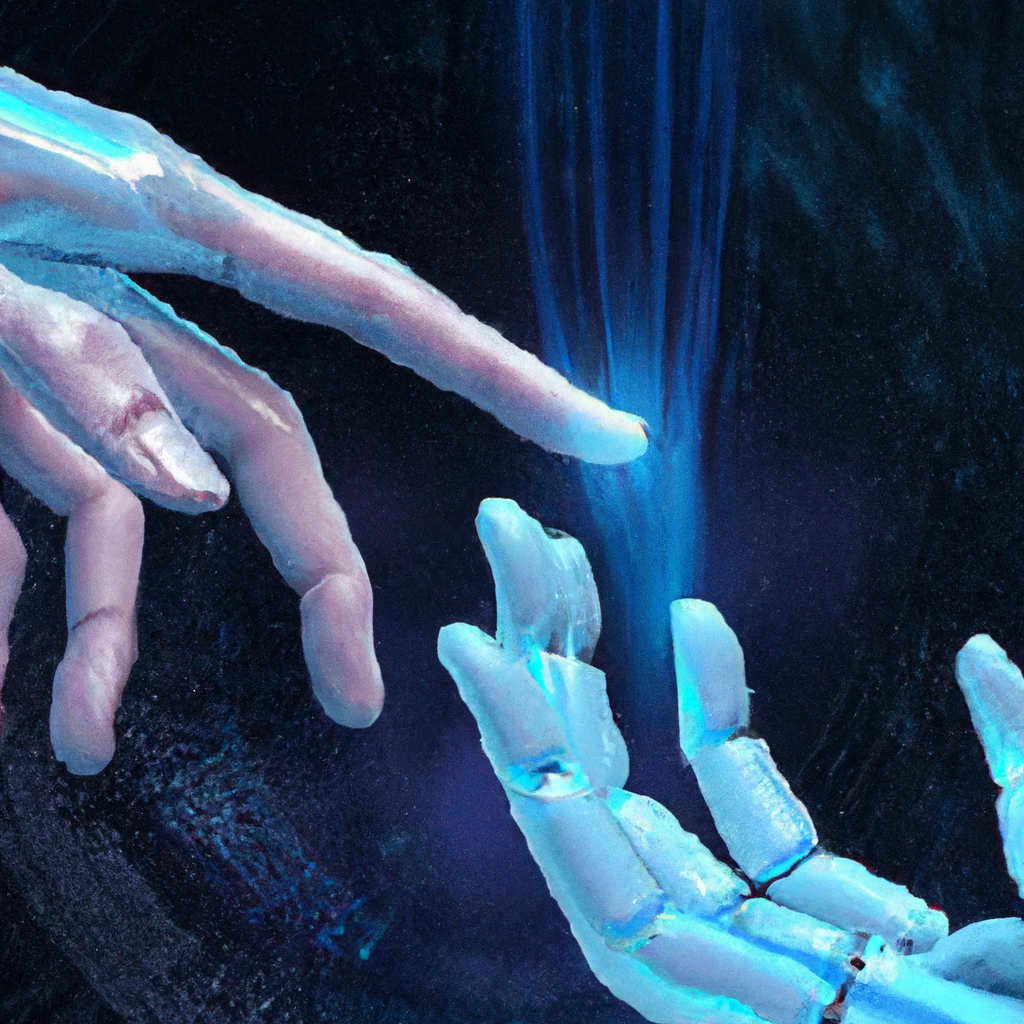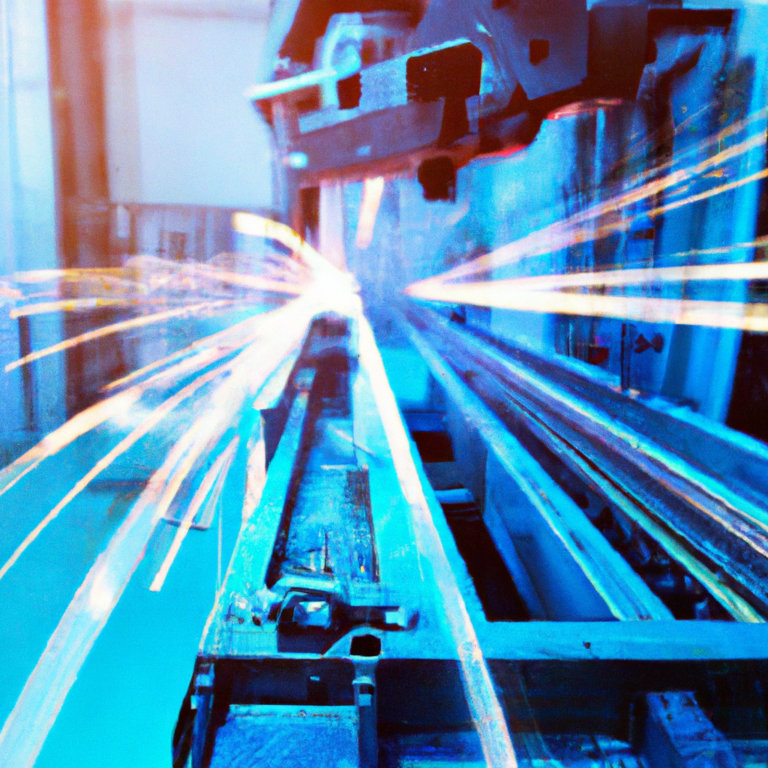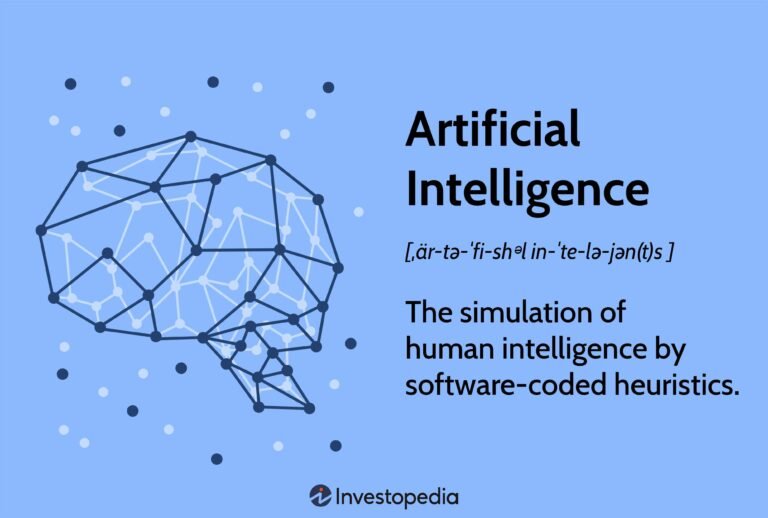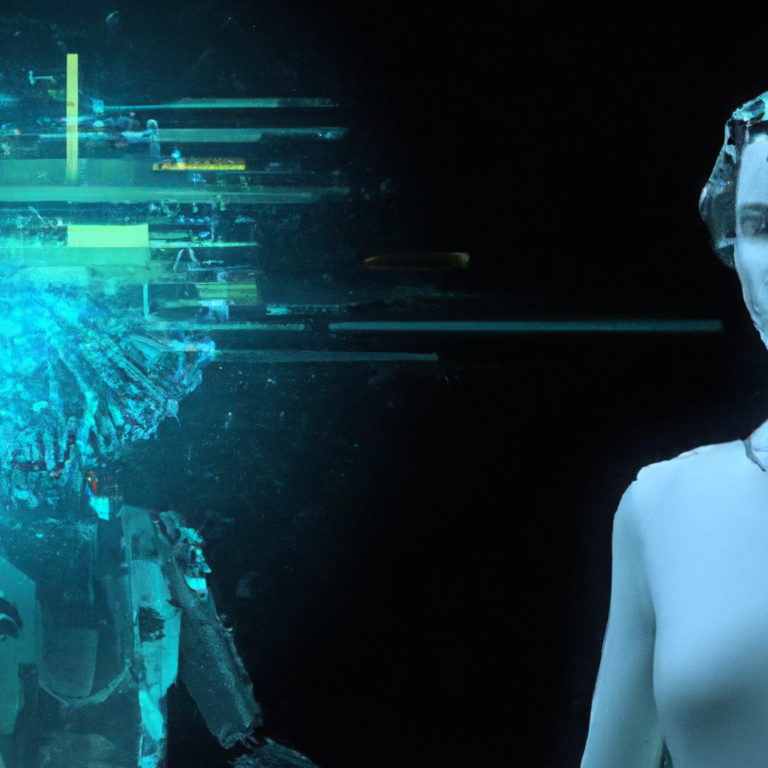AI And The Future Of Humanity: What Does The Rise Of AI Mean For Our Species?

In a world where artificial intelligence is becoming increasingly prevalent, we find ourselves grappling with the question of what its rise truly means for our species. As technology continues to advance at an exponential rate, new possibilities and potential risks arise. This article delves into the implications of AI on humanity, exploring the potential benefits it brings as well as the ethical concerns that must be addressed. Join us as we navigate through the fascinating landscape of AI and contemplate its impact on the future of humanity.
The Definition of Artificial Intelligence
Artificial Intelligence (AI) refers to the development and implementation of intelligent systems that can perform tasks that would typically require human intelligence. In simple terms, AI involves the creation of machines that can simulate human behavior and cognitive processes, such as learning, problem-solving, and decision-making. These machines aim to replicate human intelligence and carry out tasks efficiently, accurately, and autonomously.
Understanding AI
To understand AI better, it is essential to comprehend the concept of intelligence itself. Intelligence can be defined as the ability to acquire and apply knowledge, reason, and adapt to new situations. AI seeks to replicate this cognitive ability in machines by employing algorithms, data analysis, and mathematical models. The ultimate goal is to create machines that can perceive, understand, and respond to their environment in ways that resemble human capabilities.
Differentiating Narrow AI and General AI
There are two main types of AI: Narrow AI and General AI. Narrow AI, also known as weak AI, is designed to perform specific tasks with high proficiency. Examples of narrow AI include virtual assistants like Siri and Alexa, image recognition algorithms, and recommendation systems used by online platforms. General AI, on the other hand, refers to AI systems that possess the ability to understand or learn any intellectual task that a human being can do. While General AI is still a concept of the future, Narrow AI has become increasingly prevalent in our daily lives.
The Current State of AI
AI has made significant strides in recent years and is now an integral part of various industries and sectors. From voice assistants to self-driving cars, AI-driven technologies are reshaping the way we live and work. Machine learning, deep learning, and natural language processing have emerged as key areas of AI development, enabling machines to analyze vast amounts of data, recognize patterns, and make informed decisions. The current state of AI is characterized by rapid advancements, increasing integration, and the potential for further growth and innovation.
The Advancements and Applications of AI
Machine Learning and Deep Learning
Machine learning and deep learning are at the forefront of AI advancements and applications. Machine learning involves training machines with large sets of data and algorithms to improve their performance over time. This technique enables machines to recognize patterns and make predictions without being explicitly programmed. Deep learning, a subset of machine learning, involves the use of artificial neural networks to mimic the human brain’s structure and functionality. Deep learning has revolutionized image and voice recognition systems, natural language processing, and other AI applications.
Natural Language Processing and Chatbots
Natural language processing (NLP) is a branch of AI that focuses on enabling machines to understand and respond to human language in a natural and meaningful way. NLP enables chatbots and virtual assistants to communicate with users, understand their queries, and provide relevant information or assistance. This technology is being widely used in customer service, healthcare, and information retrieval systems, improving efficiency, and enhancing user experiences.
AI in Medicine and Healthcare
AI is transforming the field of medicine and healthcare, offering immense potential for improving diagnostics, treatment, and patient care. AI-powered systems can analyze medical imaging data to detect abnormalities and assist in diagnosing diseases with greater accuracy. Machine learning algorithms can also leverage electronic health records, genetic data, and clinical literature to personalize treatment plans and predict disease outcomes. Additionally, AI is enabling the development of robotic surgical systems and telemedicine solutions, expanding access to quality healthcare services.
AI in Transportation and Autonomous Vehicles
The transportation industry is embracing AI to enhance safety, efficiency, and sustainability. Autonomous vehicles, enabled by AI technologies, have the potential to revolutionize transportation by reducing accidents, optimizing traffic flow, and improving fuel efficiency. Advanced sensors, computer vision, and AI algorithms enable these vehicles to perceive their environment, make decisions, and navigate routes with minimal human intervention. Furthermore, AI is being used in logistics and supply chain management to optimize routes, predict demand, and streamline operations.

The Benefits of AI for Humanity
Increased Efficiency and Productivity
AI has the potential to significantly increase efficiency and productivity across various industries. By automating repetitive and mundane tasks, AI frees up valuable human resources to focus on more complex and creative endeavors. This leads to higher productivity levels, as AI systems can work tirelessly and consistently without fatigue or error. Additionally, AI-powered analytics and optimization algorithms can improve operational processes, resource allocation, and decision-making, further enhancing overall efficiency.
Improved Healthcare and Diagnosis
AI has the capacity to revolutionize healthcare by improving diagnostics, treatment, and patient outcomes. AI algorithms can analyze medical images and patient data faster and more accurately than human experts, allowing for earlier and more precise disease detection. This leads to timely interventions and personalized treatment plans tailored to individual patients. Furthermore, AI-powered monitoring systems can continuously assess patient health, enabling early detection of deteriorating conditions and facilitating proactive interventions.
Enhanced Safety and Security
AI technologies are being employed to enhance safety and security measures in various settings. For instance, facial recognition systems and video analytics can help identify and track potential threats in public spaces, thereby improving surveillance. AI-powered cybersecurity systems can detect and mitigate cyber threats in real-time, protecting sensitive data and networks. Moreover, AI algorithms can analyze large volumes of data to identify patterns indicative of fraudulent activities, aiding in fraud detection and prevention.
Better Personalization and User Experience
AI enables personalized experiences and recommendations tailored to individual users’ preferences and needs. Recommendation systems, powered by AI algorithms, analyze user data, past behaviors, and patterns to provide personalized content, products, or services. This leads to a more engaging and satisfying user experience as users are presented with relevant and meaningful options. From personalized marketing campaigns to curated playlists, AI-driven personalization enhances customer satisfaction and loyalty.
Concerns and Ethical Considerations of AI
Job Displacement and Economic Inequality
One of the main concerns surrounding AI is its potential impact on jobs and economic inequality. As AI automates routine tasks and replaces human workers in certain industries, there is a risk of job displacement and reduced employment opportunities for certain segments of the workforce. This can lead to economic inequality, as those with skills that are easily replaceable by AI may face unemployment or downward mobility. Striking a balance between automation and job creation becomes crucial to mitigate these potential challenges.
Privacy and Data Security
AI relies heavily on vast amounts of data to function effectively. This raises concerns about privacy and data security. Collecting, storing, and analyzing personal data for AI applications can potentially compromise individuals’ privacy and expose them to data breaches or misuse. Regulatory frameworks and strict data protection measures are necessary to ensure data security, consent-based data sharing, and responsible data usage. Maintaining the privacy rights of individuals in the AI era is a critical ethical consideration.
Bias and Discrimination in AI Systems
AI systems, if not developed and trained properly, can inherit and perpetuate human biases and discrimination. Machine learning algorithms learn from historical data, which may contain biased or discriminatory patterns. This can lead to biased decision-making and discriminatory outcomes, perpetuating inequalities and social injustices. Careful attention must be given to training AI systems on diverse and unbiased data, ensuring fairness and equal treatment in AI applications across different populations.
Lack of Human Control and Accountability
As AI systems become more complex and autonomous, concerns arise regarding the lack of human control and accountability. AI systems are capable of making decisions without human intervention, which raises questions about who should be held accountable for any errors, biases, or unintended consequences. Establishing frameworks for oversight, transparency, and accountability in AI development and deployment is necessary to ensure that human values, ethics, and legal frameworks are upheld.

The Impact of AI on the Workforce
Automation of Routine Tasks
AI has the potential to automate routine tasks across various industries and sectors. This can lead to increased operational efficiency and cost savings, as machines can perform tasks faster and with fewer errors. However, it also raises concerns about job displacement and the need for workers to acquire new skills or transition into different roles. Reskilling and upskilling programs, along with proactive labor market policies, are essential to mitigate the impact of automation and ensure a smooth transition for affected workers.
Changing Skill Requirements
The integration of AI in the workforce is reshaping the skill requirements for employees. While routine and repetitive tasks are automated, there is an increasing demand for skills that complement AI technologies, such as data analysis, problem-solving, and creativity. This shift necessitates a focus on lifelong learning and continuous skill development to adapt to the changing landscape. Collaboration between educational institutions, employers, and policymakers is crucial to address the evolving skill needs and ensure a skilled workforce for the AI-driven future.
Job Creation and Skill Enhancement
While AI may lead to the displacement of certain jobs, it also has the potential to create new job opportunities and enhance existing roles. As AI automates routine tasks, it allows humans to focus on more complex and creative endeavors that require human intelligence, empathy, and problem-solving skills. AI also creates new job roles within the development, deployment, and maintenance of AI systems. The key lies in enabling workers to acquire the necessary skills and competencies to embrace these new opportunities.
Supporting Human Creativity and Innovation
AI is not meant to replace human creativity and innovation but rather to support and augment them. By automating repetitive and mundane tasks, AI liberates human potential for higher-level thinking, problem-solving, and creative pursuits. AI algorithms can assist in generating new ideas, uncovering patterns, and facilitating the creative process. This synergy between human ingenuity and AI technology has the potential to drive unprecedented innovation and advancement in various fields, benefiting humanity as a whole.
AI and the Evolution of Human Intelligence
Augmenting Human Capabilities
AI has the potential to augment human capabilities, allowing individuals to achieve feats beyond their natural capacity. For example, wearable AI devices can enhance human senses, improve memory recall, or enable communication with machines through thought. This fusion of human cognitive abilities with AI technology has the potential to bridge gaps in human capabilities and facilitate new forms of interaction and communication.
Human-Machine Collaboration
Collaboration between humans and AI systems is becoming increasingly important, leveraging the strengths of both parties. AI can assist humans in decision-making, providing valuable insights and recommendations based on large-scale data analysis. Conversely, humans can contribute to the ethical and contextual decision-making processes, ensuring that AI systems align with human values and societal norms. The synergy between human judgment and AI capabilities can lead to more informed and responsible decisions.
The Potential of Superintelligence
Superintelligence refers to AI systems that surpass human intelligence in nearly every aspect. While the development of superintelligence remains in the realm of speculation, it poses both immense possibilities and profound existential risks. The potential benefits of superintelligence include solving complex global challenges, advancing scientific knowledge, and enhancing human well-being. However, the risks associated with superintelligence, such as loss of human control or unintended harmful consequences, demand careful research, ethical considerations, and robust governance frameworks.
AI in the Context of Global Challenges
Climate Change and Environmental Sustainability
AI can play a crucial role in addressing climate change and promoting environmental sustainability. Through data analysis and predictive modeling, AI can help optimize energy consumption, identify patterns of environmental degradation or resource depletion, and devise sustainable solutions. Smart grid systems, precision agriculture, and energy management algorithms are just a few examples of how AI can contribute to mitigating climate change and achieving a more sustainable future.
Health Crises and Pandemics
The ongoing COVID-19 pandemic has demonstrated the potential of AI in managing health crises and pandemics. AI algorithms can analyze large-scale data, identify disease hotspots, track virus transmission patterns, and assist in developing effective containment strategies. Furthermore, AI-powered systems can facilitate contact tracing, monitor patient conditions remotely, and support healthcare professionals in making informed decisions. Harnessing the power of AI in future health crises can enable a more proactive and effective response.
Resource Management and Allocation
The efficient management and allocation of finite resources pose significant challenges for global development. AI algorithms can optimize resource allocation, such as water distribution, energy management, or transportation planning, to ensure equitable access and minimize waste. Machine learning algorithms can also analyze patterns of resource consumption and identify opportunities for conservation and sustainability. By leveraging AI technologies, societies can achieve better resource management, leading to improved living conditions and economic stability.
Social and Economic Inequality
AI has the potential to either exacerbate or alleviate social and economic inequalities. Without proper regulations and ethical considerations, AI applications can further marginalize vulnerable populations, reinforce biases, and widen existing disparities. However, by prioritizing fairness, diversity, and inclusion in AI development and deployment, societies can leverage AI technologies to bridge the gap between privileged and underprivileged communities. Ensuring equal access and opportunities for all should be a fundamental aspect of utilizing AI to address social and economic inequality.
The Risks and Dangers of AI
Unemployment and Social Disruption
One of the prominent risks associated with AI is unemployment and social disruption. As AI automates tasks that were traditionally performed by humans, there is a potential for widespread job displacement. This can lead to economic hardships, social unrest, and increased inequality unless proper measures are taken to address the socioeconomic impacts of AI-driven automation. It is crucial to proactively invest in education and retraining programs to equip individuals with the skills needed in the AI-powered economy.
Autonomous Weapons and Warfare
The development and deployment of autonomous weapons powered by AI raise significant ethical concerns. Autonomous weapons have the potential to make decisions and carry out actions without human intervention, posing risks to civilian populations and exacerbating conflicts. Responsible development and governance of AI technologies are essential to ensure that ethical considerations, international laws, and human oversight are maintained in the realm of warfare and defense.
Existential Risks and Superintelligence
The hypothetical development of superintelligence presents existential risks to humanity. If superintelligent AI systems surpass human intelligence and exhibit autonomous decision-making capabilities, there is a potential for unintended harmful consequences. Ensuring alignment with human values, ethical frameworks, and responsible development is crucial to mitigate the risks associated with superintelligence and prevent scenarios where AI systems act against humanity’s best interests.
Misuse and Abuse of AI Technology
The potential misuse and abuse of AI technology pose significant risks to society. Malicious actors can exploit AI-powered systems for surveillance, privacy breaches, or propaganda dissemination. AI-generated deepfakes can deceive and manipulate individuals, leading to security threats and disinformation campaigns. Ethical guidelines, strict regulations, and responsible usage practices are essential to mitigate the potential harm arising from the misuse of AI technology.
Towards Ethical AI Development and Governance
Transparency and Explainability
Transparency and explainability are essential aspects of ethical AI development. AI systems should be designed and developed in a way that allows for clear understanding of their decision-making processes and underlying algorithms. Providing explanations for AI-generated outcomes builds trust, enables accountability, and ensures that AI systems do not perpetuate biases or discrimination.
Fairness and Accountability
AI systems should be designed and trained to promote fairness and accountability. Bias detection and mitigation techniques should be employed to prevent discriminatory outcomes. Developers and organizations should take responsibility for the ethical implications of their AI systems and be held accountable for any harm caused. Fair and transparent evaluation methodologies should be established to assess the fairness and performance of AI algorithms in various contexts.
International Collaboration and Regulations
The global nature of AI development and deployment calls for international collaboration and regulatory frameworks. Governments, organizations, and experts should engage in dialogue and cooperation to establish common norms, standards, and regulations for the ethical development and use of AI. International agreements and collaborations will facilitate the sharing of best practices, minimize the risks of AI misuse, and safeguard global interests.
Ethical Frameworks and Guidelines
Developing and adhering to ethical frameworks and guidelines is crucial for responsible AI development and governance. Organizations should adopt ethical principles that prioritize human well-being, fairness, and transparency. Ethical considerations, such as privacy protection, bias mitigation, and social impact assessment, should be integrated throughout the AI development lifecycle. Clear guidelines and ethical frameworks will lay the foundation for responsible AI implementation that benefits humanity and respects fundamental rights.
Preparing for the Future with AI
Investing in AI Education and Research
Preparing for the future with AI requires significant investment in education and research. Educational institutions should incorporate AI-related topics into their curricula to equip students with the necessary skills and knowledge. Scholarships, fellowships, and research grants can encourage AI-focused research and innovation. By fostering a strong AI education ecosystem, societies can ensure a skilled workforce capable of leveraging AI for societal progress.
Developing Adaptability and Resilience
As AI continues to advance and disrupt various industries, individuals must develop adaptability and resilience. Lifelong learning, upskilling, and embracing continuous change become essential in navigating the AI-driven future. Cultivating adaptability and resilience will enable individuals to thrive in an evolving job market and make the most of the opportunities afforded by AI technologies.
Addressing the Socioeconomic Impact
Addressing the socioeconomic impact of AI requires proactive measures to ensure a just and inclusive transition. Governments and policymakers should implement appropriate labor market policies, social safety nets, and reskilling initiatives to mitigate the potential negative consequences of job displacement. Collaboration between stakeholders should focus on fostering equitable access, lifelong learning, and inclusive growth in the AI-powered economy.
Fostering Ethical Considerations
Ethical considerations should be at the forefront of AI implementation and development. Organizations should adopt codes of conduct and best practices that prioritize ethics, human values, and social responsibility. Incorporating multidisciplinary teams and diverse perspectives in AI development fosters a holistic understanding of potential ethical implications. By placing ethics at the core of AI-driven initiatives, societies can shape a future that benefits humanity as a whole.
In conclusion, the rise of AI presents both immense opportunities and significant challenges for humanity. From revolutionizing industries and enhancing productivity to tackling global challenges and reshaping human intelligence, AI is set to redefine the way we live and work. However, it is crucial to navigate the advancements and applications of AI while carefully addressing ethical considerations, ensuring transparency and accountability, and fostering collaboration and regulation on a global scale. By embracing AI’s potential, investing in education and research, and adopting ethical frameworks, societies can prepare themselves for a future where AI and humanity coexist harmoniously, driving progress and innovation for the benefit of all.
Want to write articles like us? Get your copy of AI WiseMind here!






